When a Tennessee homeowner noticed a gas leak on his property, he quickly called for repairs. But when the repairmen showed up, they called animal rescue. Turns out, the leak wasn’t your usual wear-and-tear. As the repairmen investigated the situation, they discovered a bear was using the basement crawl space as a makeshift den.
The Tennessee Wildlife Resources Agency (TWRA) was notified immediately and Sergeant David Sexton went to the scene, the Appalachian Bear Rescue (ABR), another organization that worked on this case, reported. He saw the large animal and listened carefully for a long time but there were no sounds of cubs under the house (cubs make a lot of noise when they are hungry or nursing).
But there was a problem. A crawl space beneath a building is not a great place for a bear den, especially if there’s a gas leak. There was no way to know if the gas injured the bear, nor was there a way to safely repair the gas line while the bear was in residence. And there was no way to keep the home warm and habitable without repairing the gas line, too.
After consulting with other experts, Sergeant Sexton put together a plan to get the bear to move along.
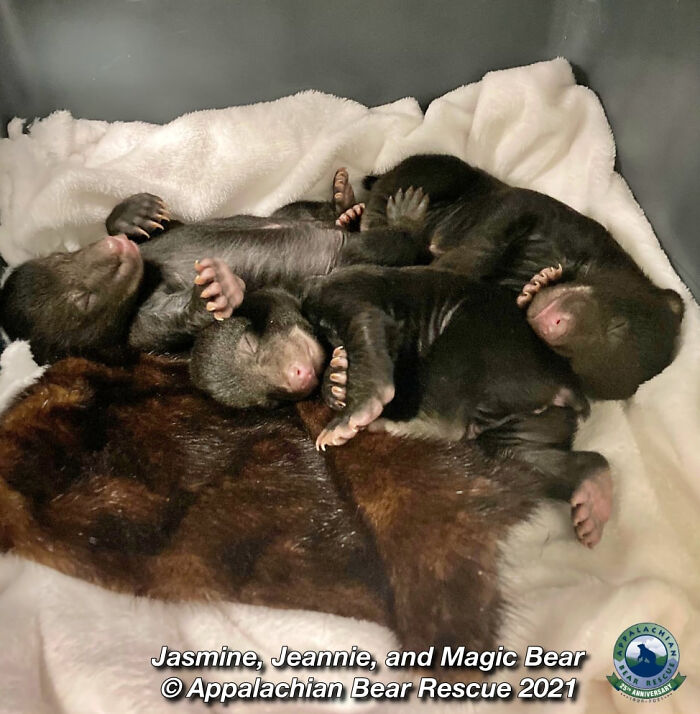
Image credits: AppalachianBearRescue
It worked. The bear abandoned the premises. But the big male bear was actually a huge female bear and she left behind three cubs-of-the-year. “Officer Sexton called Curator Coy who issued an emergency call to action,” the Appalachian Bear Rescue wrote. “Curator Coy called Curator Matthew (Matthew was on duty and labeling soil sample bags) and gave him a list of needed supplies. Coy drove to the ABR facility, picked up Matthew and the supplies, and rushed to Sevier County to assist.”
Coy and Matthew picked up a carrier, a cub cave, blankets, towels, and warming disks. When they arrived, Sergeant Sexton had already safely removed the cubs from under the home and was keeping them warm in a basket with warm towels (provided by the homeowners).
“Sargent Sexton watched to see if the mother bear would attempt to return, but she did not. Officers will continue to check to see if there is any evidence of her returning to her former den.”
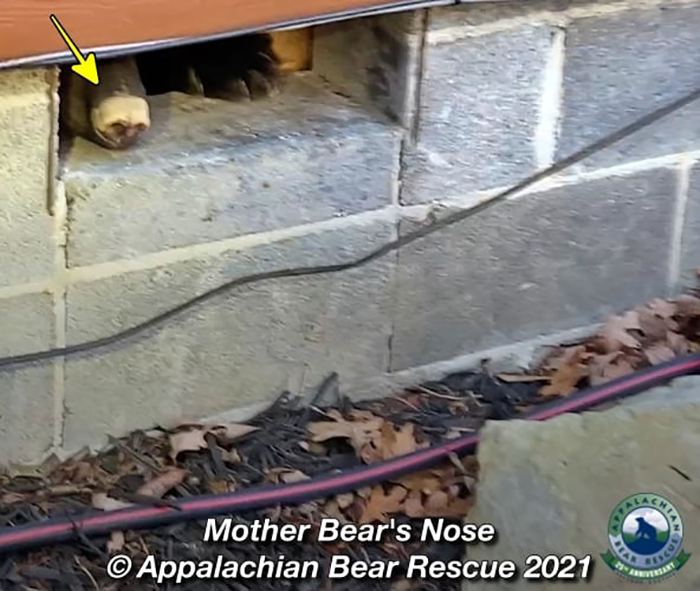
Image credits: AppalachianBearRescue
In the meantime, Curator Coy contacted the doctors at The University Tennessee College of Veterinary Medicine (UTCVM), and Coy and Matthew (with an escort from Officer Sexton and Lieutenant Collins) rushed the three little bears to the hospital.
“Dr. Ready and his team were on call and ready to help when the cubs arrived,” the Appalachian Bear Rescue said. “The cubs are female, very young (their eyes are not open yet), and they weigh just over two pounds each. They are in good overall health. Late last night, Coy and Matthew were able to get all three to consume some nutritious Fox Valley Nutrition Bear Milk Replacer. They kept the formula at half-strength for the night and switched it to full-strength this morning. Our curators will watch them around the clock and feed them every three hours. They will return the cubs to UTCVM if they require more medical assistance. Curator Quanah will arrive later this morning and Coy, Matthew, and Quanah will work out a duty schedule.”
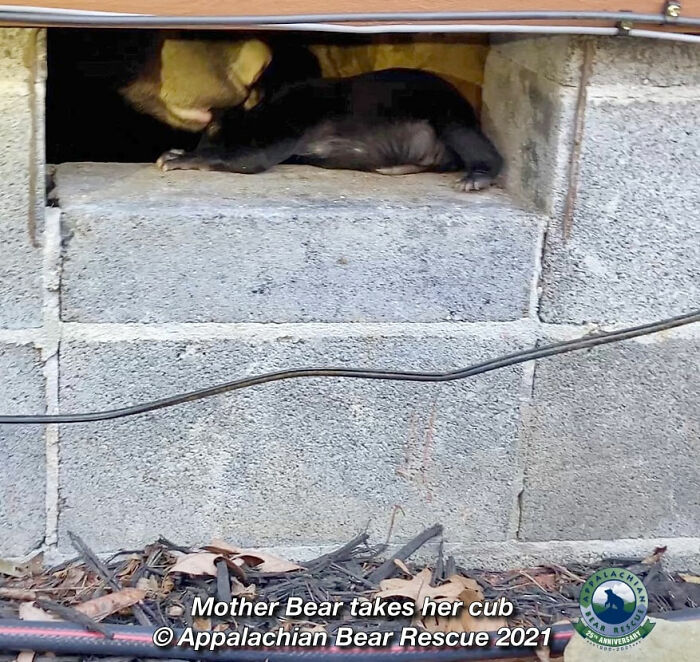
Image credits: AppalachianBearRescue
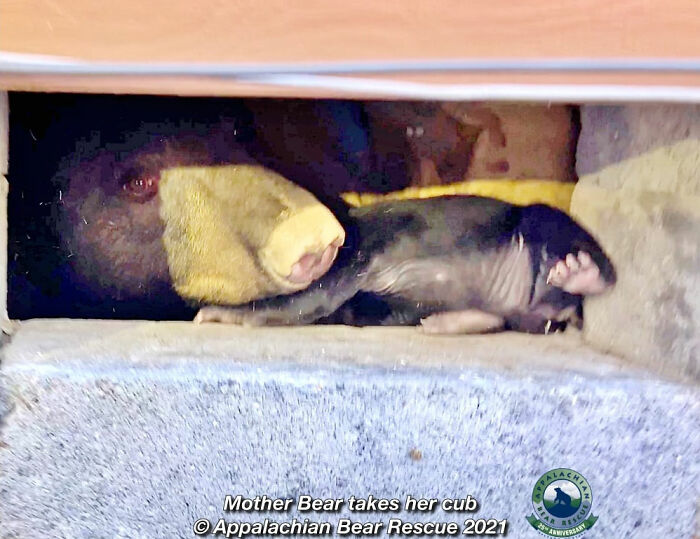
Image credits: AppalachianBearRescue
It is still very early in the cub season and mother bears are still in dens, so Appalachian Bear Rescue alerted all the wildlife agencies to the situation and started to investigate all possibilities of fostering these cubs with a mother bear and her family. “Even on very good days, we are a distant second-best to a mother bear.” They planned to provide the best care they could and considered returning the three sisters, Jasmine, Jeannie, and Magic Bear, back to the wild when they’re big enough and strong enough to live on their own if fostering turns out to be impossible.
A day later, the organization wrote an update on how the cubs were doing. “Jasmine, Jeannie, and Magic Bear, our three cubs-of-the-year, are doing well … At present, our concerns are focused on the basics: are they eating? are they eating enough? are they eating too much, too fast, etc.? are they pooping? are they peeing? are they sleeping? Our three-week-old cubs are small (about two pounds each (0.9 kg)) but they are strong little mites; they can clamber up a curator’s arm in seconds, just as they would have with their mother when searching for milk. However, the tiny bears are still blind and completely dependent on the curators.”
The Appalachian Bear Rescue thought that reuniting the cubs with their mother was next to impossible. “Once workers were able to access the crawl space she was using as her den, they discovered considerable damage to the ductwork and insulation under the cabin. It’s likely mother bear was responsible for the gas leak that started the chain of events that led to her three cubs arriving at ABR. Regardless, she can’t continue to use the crawl space as a den, and the cubs are too young to be moved around in the cold.”
But the very next day, the family got back together!
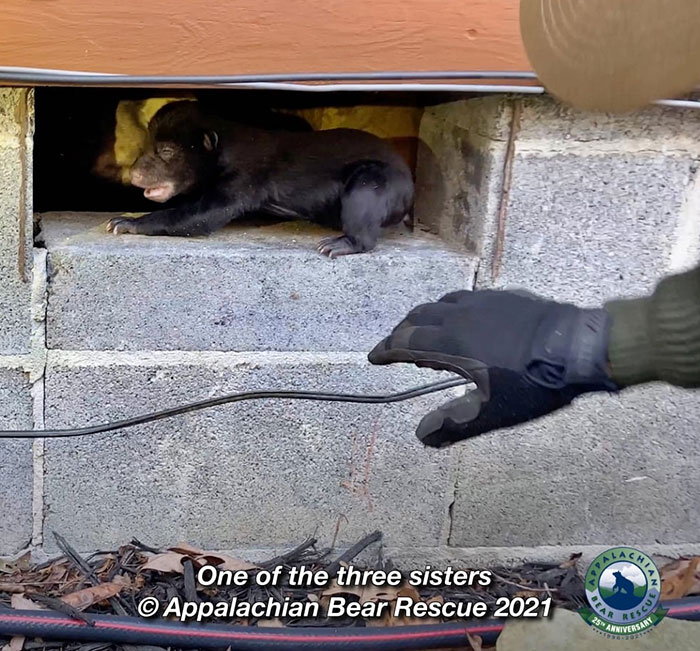
Image credits: AppalachianBearRescue
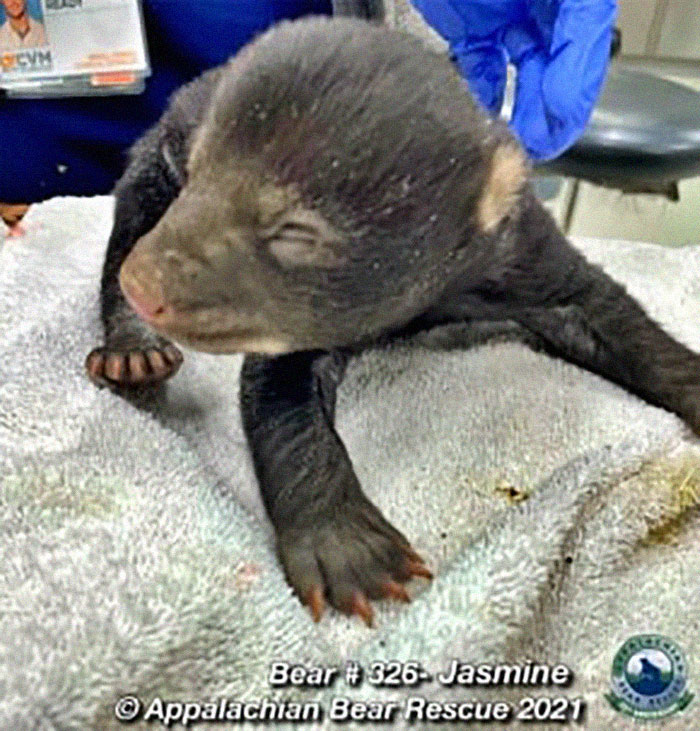
Image credits: AppalachianBearRescue
“Over the past 25 years, we’ve learned enough about black bears to always qualify our statements. We use words like ‘often’, ‘usually’, ‘likely, ‘nearly’, ‘mostly’. We’ve learned that as soon as we issue an unequivocal pronouncement about ursine behavior, some bear, somewhere, will prove us wrong.”
“We wrote in reference to the three little cubs: ‘Reunion with their mother is next to impossible.’ We’re happy we didn’t say it was flat-out impossible, though everything pointed to it being so. With all the humans going in and out of the crawl space, we were sure she’d never come back. But she did. And we’re happy she did. Learning never ends.”
“With all the excitement and anxiety over the arrival and departure of Jasmine, Jeannie, and Magic Bear, we’re sure our curators will be relieved to return to bagging soil samples and rehabilitating wild enclosures. S’ok. Boring is good. We post updates 4 times weekly: Tuesday – Regular Post, Wednesday-Facebook Live, Thursday-Regular Post, Sunday-Facebook Live.”
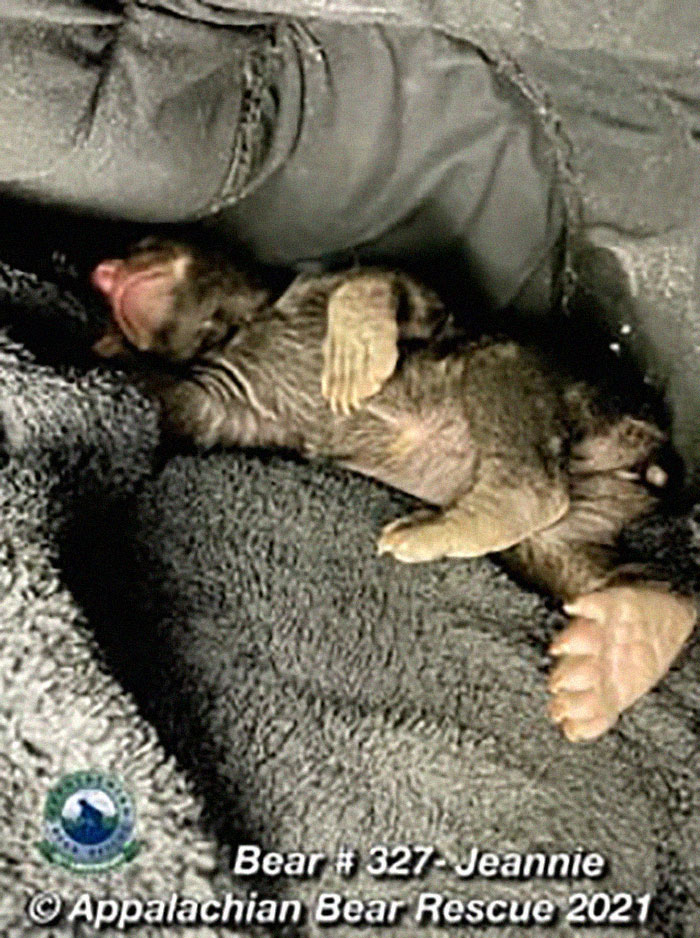
Image credits: AppalachianBearRescue
When mama bear returned to the site, the unexpected turn of events led rescuers to develop a new plan. Instead of trying to place the cubs in foster bear families, they asked the homeowner to let mama bear and her cubs wait out winter together in their makeshift den. Thankfully, the homeowner agreed.
Rescuers believe the mother bear will take her growing family back out into the wild when spring arrives.
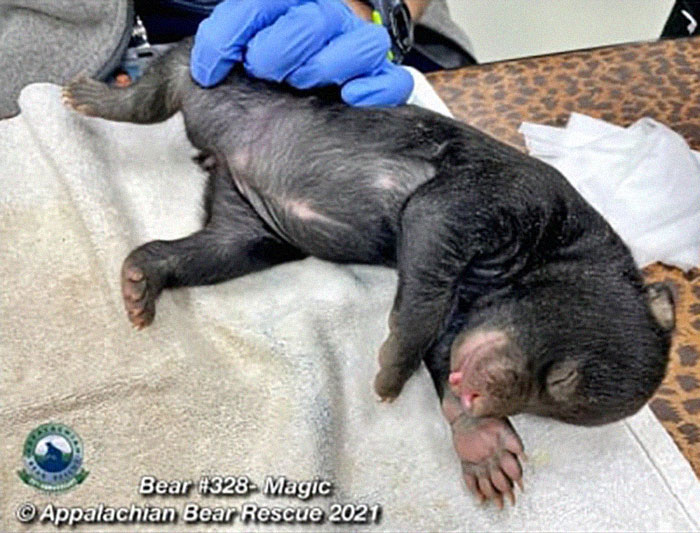
Image credits: AppalachianBearRescue
To learn more about this story, watch the video below
Here’s what people said about the bear family








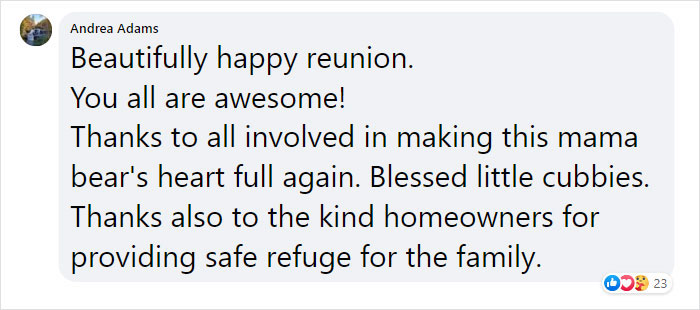


The post Homeowner Discovers A Bear Peacefully Hibernating Underneath His House With Its 3 Cubs first appeared on Bored Panda.
from Bored Panda https://bit.ly/3bpehky
via Boredpanda